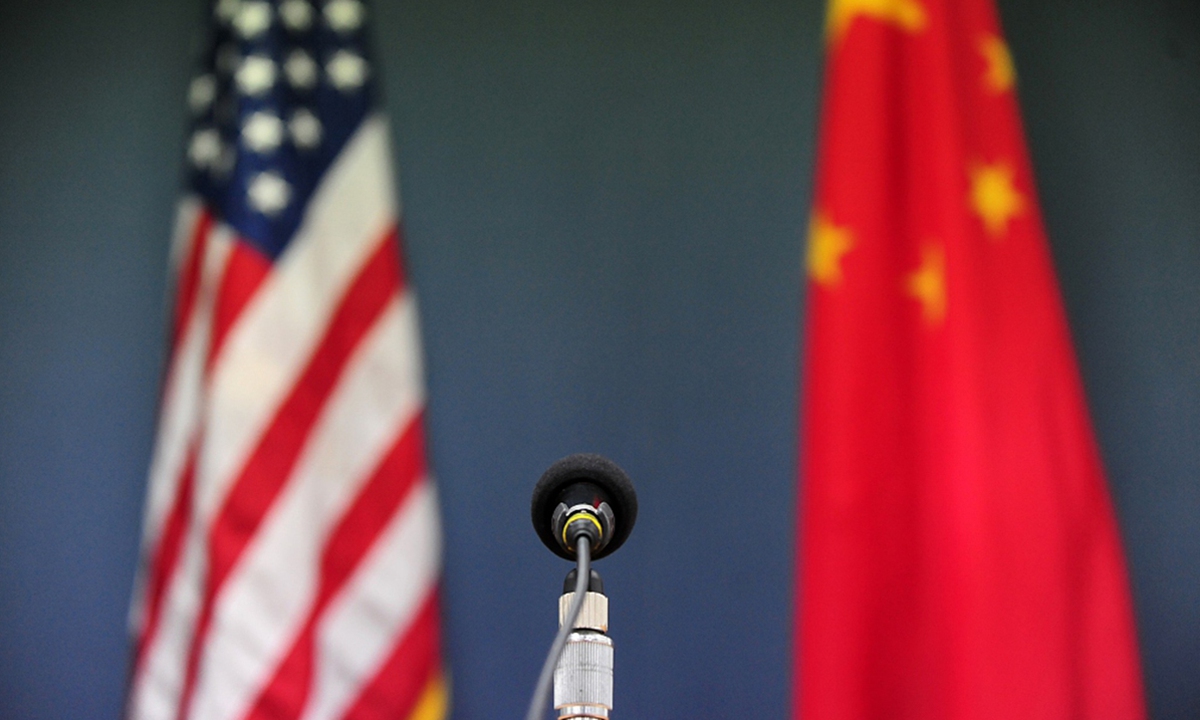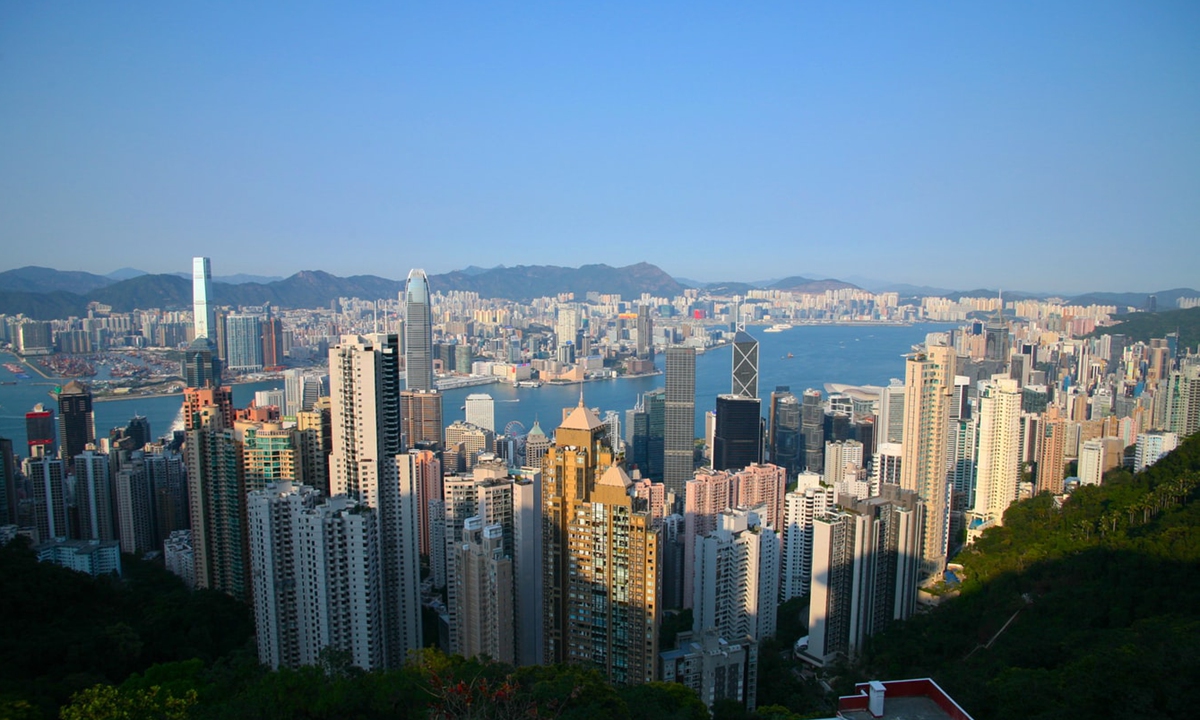We learnt two things from the China-US high-level dialogue held in Alaska last week.
The first was from the session at the beginning when the media were present. This would normally be conducted in a polite and somewhat anodyne fashion dressed up in diplomatic nicety. It could not have been more different. Secretary of State Antony Blinken and National Security Advisor Jake Sullivan commenced the proceedings and made some sharp criticisms of China. In response, Yang Jiechi, a member of the Political Bureau of the Communist Party of China (CPC) Central Committee and director of the Office of the Central Leading Group for Foreign Affairs, gave a bravura performance. Far from pulling his punches or couching his words in diplomatic language, he let his American counterparts have it with both barrels, challenging not just the US position but its very legitimacy. And all this before the world's media.
Let me quote some of his choice barbs: "When I entered this room, I should have reminded the US side of paying attention to its tone." "The US is not qualified to say it wants to speak to China from a position of strength." "China and the international community…uphold the UN-centered international order…not what is advocated by a small number of countries of the so-called 'rules-based' international order." "On human rights, we do hope the US will do better on human rights. The challenges facing the US in human rights are deep-seated. They did not just emerge over the past four years, such as Black Lives Matter." "On cyber-attacks, let me say that whether it's the ability to launch cyber-attacks or the technologies that could be deployed, the US is the champion." "The US does not represent international opinion and neither does the Western world."
While delivering these shots, Yang spoke with passion but never raised his voice. There were no cheap jibes. He occupied the high ground in the argument and left the Americans bewildered and belittled.
This is not normally the Chinese manner on such occasions. It is a sign that something has changed. There is a new sense of confidence on the part of the Chinese. That they are - or can - win the argument. That they are at least the equals of America. That they speak from a position of strength and America from a position of weakness. That history is on their side. It feels like the diplomatic equivalent of moving from "keeping a low profile" to "striving for achievement," or from being a relative spectator in the global system to becoming a major architect. The Americans have hitherto always thought of themselves as running the show; the shock visible in the body language of Blinken and Sullivan was the realization, conscious or unconscious, that this was no longer the case. The same was apparent in the Western media. The BBC, for example, invariably critical of China, reported it with an unfamiliar neutrality, as if stunned by the role reversal.
The second thing we found out from the dialogue (albeit already evident from the signals emanating from the White House), was that there will be no return to the status quo ante. That Biden is desperately anxious to appear as hostile to China as Trump was before him. The underlying forces at work here are very deep. America is in the process of coming to the painful realization that China is now its equal. But it cannot bring itself to accept or acquiesce in what is already an historical reality. That is why there can be no return to 1972 (Mao-Nixon Accord) or 1979 (US recognition of China). The relationship that prevailed then between China and the US was entirely different: the US was the giant, China a minnow. That was the basis of the US-China relationship for 45 years from 1972 until Trump torpedoed it in 2017, even though, of course, by the end China's rise was already undermining America's assumptions about the relationship. The realization that China was on the verge of overtaking the US economically, that China enjoyed a huge global presence, that it was already in effect its equal, came as an enormous shock to the American psyche and body politic.
Addicted to its hubris, it failed to see the blatantly obvious coming. As there can be no return to the past, the China-US relationship, so crucial to both and to the whole world, will have to be rethought on an entirely new basis, namely one of mutuality and equality. The problem is that the US is very far from thinking like this. How America needs for these times a giant like Henry Kissinger: someone who understands - and admires - China in a very profound way.
For the time being we must think in more mundane ways. Cooperation will be confined to the foothills, it will be a case of issue by issue, a bit here and a bit there, rebuilding contacts and communications between the two countries, ending as best can be done the toxicity and wanton destruction wrought by Donald Trump. Even this will not be easy but it ought, at a pinch, to be possible, with climate change offering the most important challenge and opportunity. For without cooperation between the two countries, climate change will imperil the very future of the planet and humanity.
The author was until recently a Senior Fellow at the Department of Politics and International Studies at Cambridge University. He is a Visiting Professor at the Institute of Modern International Relations at Tsinghua University and a Senior Fellow at the China Institute, Fudan University. Follow him on twitter @martjacques. opinion@globaltimes.com.cn
China's 'wolf-warrior diplomacy' in Alaska meeting impresses world; behind it is the West-East battle: observers
Related posts:
China-US high level strategic dialogue: Chinese diplomats deal vigorous counterblows to condescending US representatives; common ground hard to reach on contrasting logics

Why Europe gravitates away from US to Eastern power center: Martin Jacques
China-Hong Kong union needs sense of inclusion

Human right violators: USA,Canada, Autralia, UK, EU - Racism against Asians: Forever foreigner, alien or pendatang
Why does the West fail to understand China? The West misreads, China is rising, said Cambridge Prof
America’s 5 Stages of Grief Over China’s Rise; Trump and wife test positive for Covid-19










No comments:
Post a Comment